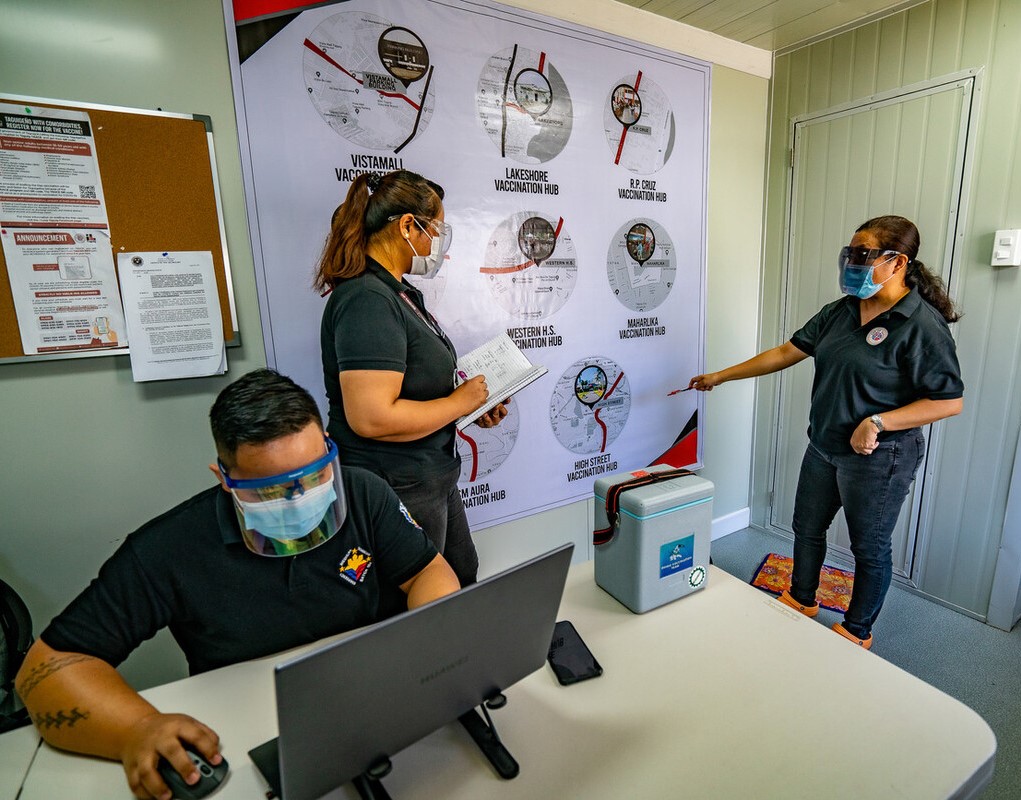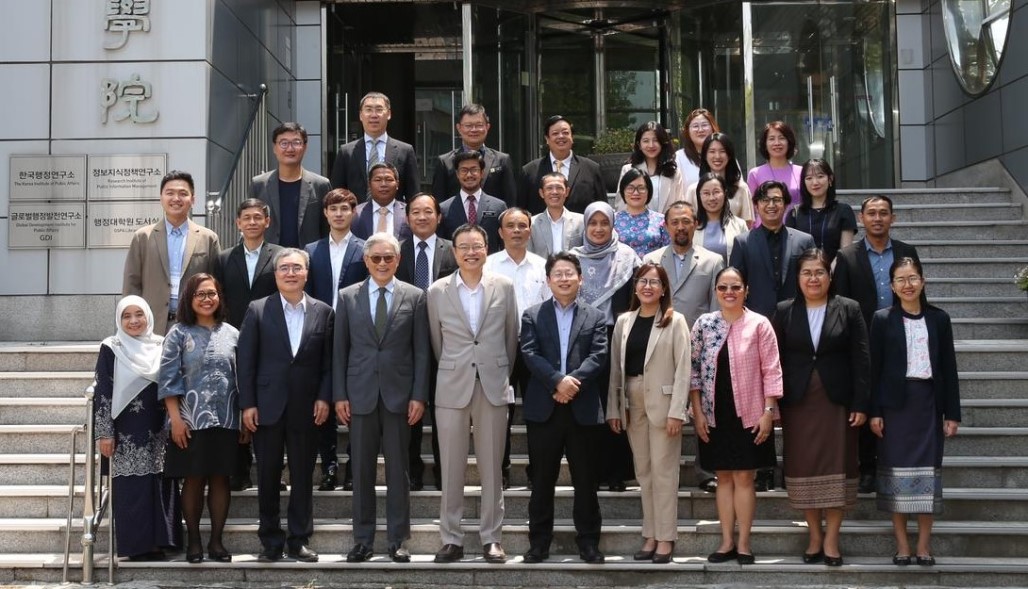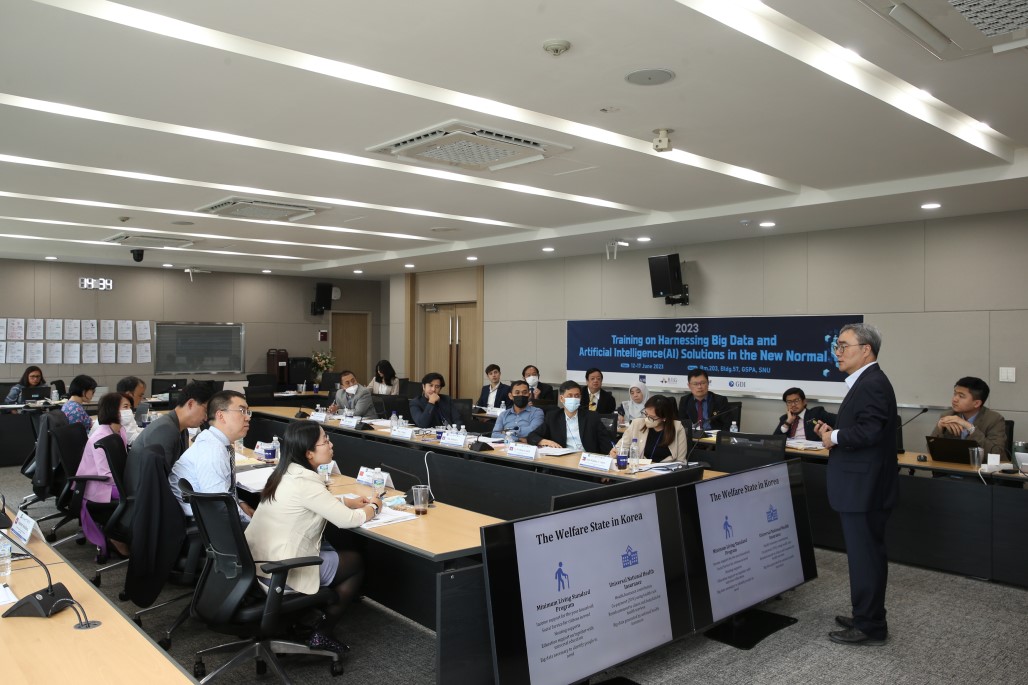
Data-driven solutions have helped cities and countries hone their COVID-19 response and mitigation strategies. Big data analytics, with some aided by artificial intelligence (AI) and machine learning, enabled policy and decision makers to design and calibrate health interventions, social assistance, and other measures better.
The hard lessons learned from a protracted pandemic now shape the path toward a resilient recovery—not least the importance of evidence-informed policies and decisions and the ability to swiftly turn big data into actionable insights.
Twenty-two mid-level government officials from Southeast Asia took part in a capacity building program in Seoul that focused on deploying big data and AI applications to improve public service delivery in the health and social welfare and protection sectors. Jointly organized by the Asian Development Bank (ADB) and the Global Development Institute (GDI) of the Graduate School of Public Administration of Seoul National University (SNU), the training on “Harnessing Big Data and AI Solutions in the New Normal” was held from 12 to 17 June with funding support from the Republic of Korea e-Asia and Knowledge Partnership Fund. Policy makers, health and social sector planners, and digital technology practitioners participated in the program.

Saving costs, creating opportunities
Increased health and social spending because of COVID-19 strained fiscal resources not just in Southeast Asia but also in many countries around the world. More people needed assistance as the disease crossed borders and income classes. Economic disruptions and unforeseen health costs during the pandemic pushed millions of households back into poverty or deeper into it.
An ADB study shows that big data applications can help speed up COVID-19 recovery and improve the responsiveness and resilience of health and social welfare systems to future shocks. Research indicates that using remote health monitoring systems could save Southeast Asian countries $9.4 billion annually by 2030 through reduced hospital visits, length of hospital confinement, and medical procedures.
Big data analytics enables the targeting of timely and effective health interventions for vulnerable populations, which could reduce the economic burden of disease and lead to an increase of $15.5 billion in the gross domestic product (GDP) across the region by 2030. The study says being able to analyze large amounts of raw data efficiently can also help address social welfare challenges by identifying and targeting vulnerable groups with speed and precision; improving program delivery and detecting fraud; and assessing program effectiveness. These improvements can save time, money, and lives.

Sharing lessons and best practices
The training in Seoul discussed policy options drawn from global good practice examples and lessons, including those from the Republic of Korea, which deployed data mining solutions, AI-powered advance warning systems, and proactive digital surveillance systems during the pandemic. The objective was to help countries create an enabling environment for using big data and AI solutions in the medium and long terms.
It also provided networking opportunities for government officials to share their knowledge, experience, and insights as well as explore ideas and solutions not just for their countries but also for the region. The training was carried out under the BIMP-EAGA, IMT-GT and GMS Capacity Building Program (B-I-G Program), which is part of an ADB project that supports regional cooperation and integration.
Regional cooperation plays an important role in implementing big data and AI solutions. For example, harmonization of laws and regulations is needed to share and access regional health data and other information, which are vital in cross-border monitoring to prevent the spread of infectious diseases. Moreover, as privacy issues permeate borders, a uniform legal data protection framework, such as the Asia–Pacific Economic Cooperation Cross Border Privacy Rules and ASEAN frameworks on data privacy and protection, should also be applied throughout the region. Regional bodies and development institutions will be instrumental in facilitating cooperation in all these areas.
The special topic featured in the program was how big data and AI solutions are used by smart cities in the Republic of Korea. Seoul is considered one of the leading smart cities in the world. Three technical field visits were arranged for the participants to Smart Seoul Exhibition Hall, Korea Land and Housing Corporation, and Sejong smart city.
This article was first published by BIMP-EAGA on 26 June 2023.

